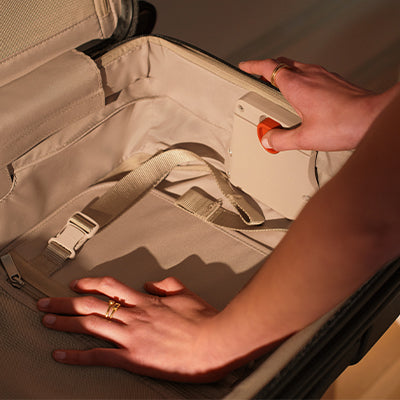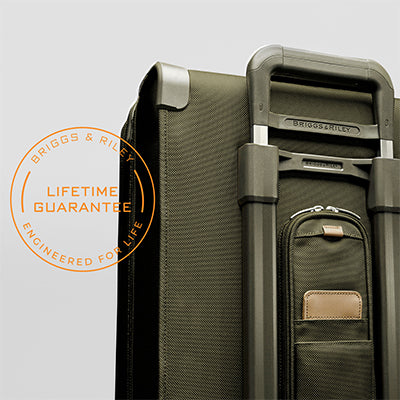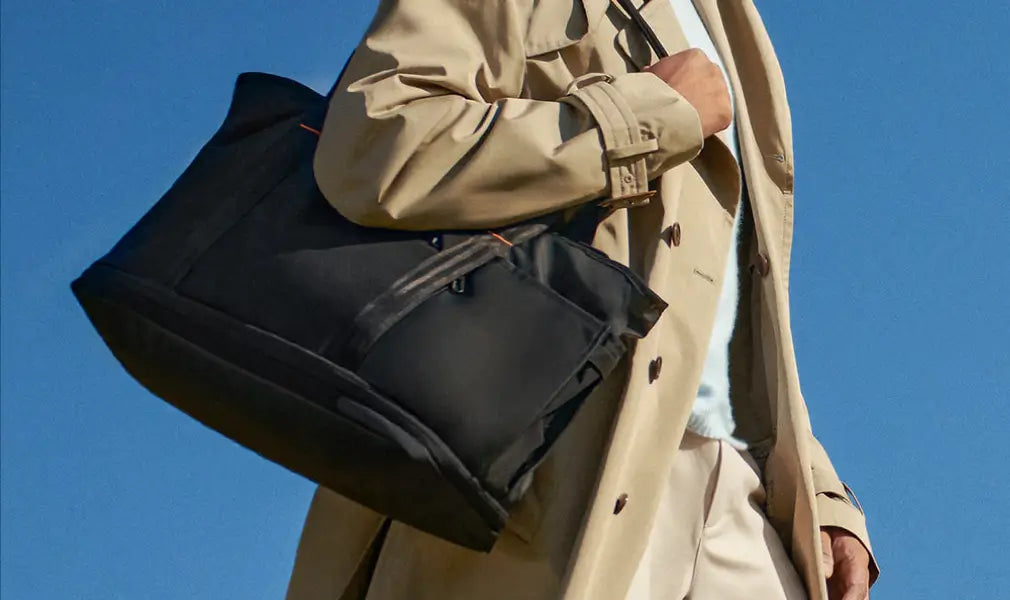Have the desire to take a vacation but don’t want to travel by airplane, bus, or train? Then an RV vacation may be the perfect trip for you and your family.
Sure, a car is always an option for road trips, but getting an RV can provide enhanced comfort, more space, and the ability to cook meals on the road. If you’re a fan of YouTube travel vloggers, then you may have noticed that RV excursions are the latest trend, and with good reason.
As a bonus, taking an RV vacation versus a regular trip is more cost-effective. A new study conducted by CBRE Hotels Advisory Group compares the cost of eight of the most popular vacation types using a hypothetical family of four — two adults, two kids. The study determined that RV vacations are by far the most economical — on average, 27% to 62% less expensive on a per-day basis compared to other vacation options analyzed.
TOP RV TRAVEL TIPS & ADVICE
Even though you may be thrilled at the idea of an RV travel experience, it can also be a bit intimidating once you finally pull the trigger on the idea. Not to worry; here are a few RV travel tips for when you book your next vacation.
Make Sure at Least One Traveler Knows How to Drive an RV
While it may sound obvious, if this is your first time RV rental, make sure at least one of the travelers knows how to drive an RV and is comfortable doing so. Take it for a test drive before committing to avoid making a costly investment that you can’t use. It’s not uncommon for the dealership or rental agency to want to ensure that you’re able to handle such a large vehicle, too.
Parking and RV hookups can also be intimidating, but the fellow RV community can often feel like extended family, so don’t be afraid to ask for help. Do your due diligence by reading the manufacturer’s manual and asking the dealership detailed questions about the hookup process. The last thing you want to do is blow out the electrical system.
Decide if You’re Renting or Buying an RV
Buying versus renting is likely an easy decision to make because it’s all going to come down to budget. According to Camper Report, “RVs can cost between $10,000 and $300,000 depending on the style and features. A moderately-appointed camper trailer pulled behind a truck might cost $20,000, while a fifth-wheel may be $40,000. Most motorhome prices usually start around $100,000.”
The average cost to rent an RV is substantially lower — somewhere in the range of $100 to $300 per night, depending on the size and model. When it comes to how to rent an RV, the process is easy. Start by researching dealers near you, understand the age requirements for drivers, drop-off and pickup times, additional fees, mileage packages, driving restrictions, insurance coverage, and damage fees.
Determine How Much Space You’ll Need
Are you traveling as a couple, with friends, or as a family of five? Once you determine the number of people, you can choose the right motorhome for your trip. Remember, the purpose of choosing an RV over a car is comfort, so just because a set of wheels says it sleeps eight people doesn’t mean it does so comfortably.
Don’t choose an RV without touring it first. Keep sleeping arrangements and lounging and dining spaces top of mind when deciding RV is best suited for your family.
Evaluate the Different RV Models
Class A RVs (otherwise known as mega motorhomes) can be more straightforward or straight-up luxurious. This type of motorhome is an excellent option for large groups or those who want a lot of space to roam around. Class B models are more like a mini RV rental (like a van) than a motorhome and are really only suitable for one to two people — there may not be the option to cook either. Class C RVs are more extensive than B models but smaller than A. They have kitchen and dining areas, but the sleeping quarters are located over the top of the driver’s seat, so this is not an option if you’re traveling with a crowd.
If you wish to take your car, you’ll want to look into different travel trailers, ranging from pop-up models to rounded campers. Be sure to check your car’s towing capabilities to ensure it can safely transport the trailer.
Prepare Yourself for the Dumping of RV Wastewater
First time RV camping? Then you’ll want to pay extra attention to this motorhome camping tip. While it’s not going to be the highlight of your experience, dumping RV wastewater is a necessary task and part of RV travel. It’s worth the added cost of paying for dump services at your RV park or campground. However, if you decide to do it yourself, study the process as much as possible beforehand by watching YouTube videos and reading your user’s manual to avoid an overly messy experience.
Research Parks and Routes
Here’s where the real fun begins! There are several different kinds of RV experiences to choose from, so take your skillset, who you’re traveling with, and how much time you have into consideration. One of the easiest, luxurious, and most stress-free options is staying at a fully-loaded RV park or campground with on-site staff, full hookups, and a dump station. Check out all the available options on ReserveAmerica or Kampgrounds of America. Read the reviews from people who previously took a trip similar to the one you’re currently planning, from destinations to parks and campgrounds. And look at some RV travel guides for ideas, recommendations, and inspiration.
Plan a Realistic Budget for Your RV Trip
Some of the most important RV travel advice has to do with budgeting for your trip. When it comes to budget, the cost of renting an RV is just the tip of the iceberg. Creating a budget is a work in progress because you’ll need to keep tacking on fees as you develop your itinerary — but you can at least account for the basics right off the bat. Here are other monetary investments to consider:
- Deposit
- Insurance
- Park or campground fees
- Fee-based amenities (dumping service, kitchenware, linens, propane, generators, etc.)
- National Park passes
- Spontaneous activities and excursions
- Food — restaurants and groceries
- Gas (note the mileage is pretty awful, but there’s nothing you can do about it but budget accordingly)
- Extra funds in case of an emergency
Make a Packing List
While you’ll have to cater your packing list for your destination and the time of year you’ll be traveling, here are some basics you’ll need when getting your RV ready for travel:
- Dump hose
- Clothing, including suitable outdoor gear for hiking, fishing, etc. .
- Emergency kit
- A GoPro camera
- Games, books, or other forms of entertainment that don’t take up too much space
- Flashlights
- Insect Repellant
- Extra sheets, pillows, and blankets — including a heated one if it’s cold outside
- Fans if it’s summer — especially if there’s no AC in the RV
- Leveling Blocks
- Refillable water bottles
- Sunscreen
- Durable dishes and kitchenware (if not provided or there’s not enough)
- Folding chairs for outdoor seating
- Outdoor rug
- WiFi signal booster
- Applicable chargers and adapters
- As-needed toiletries
- Cleaning products
- Laundry detergent
- Garbage bags
- Pet supplies (food, toys, bedding, medications, etc.) if applicable
Conduct a Safety Checklist Before Hitting the Road
Whether it’s your first trip or your fiftieth, you must give your RV a thorough safety check before hitting the road.
- Check the batteries and make sure they have a full charge
- Flush the RV water system and refill with potable water
- Investigate for any water leaks
- Check all gauges for accurate readings
- Make sure all of the lights work
- Test all appliances
- Check tires
- Make sure your insurance, vehicle emissions sticker, license, and registration are all up to date.
- Check fluids in engine and generator and change/refill if need be (transmission fluid, engine coolant, power steering, windshield washer fluid, engine oil, brake fluid, and generator oil)
- Ensure the smoke, carbon monoxide, and PL gas leak detectors and fire extinguisher are working and up to date
- Inspect the seams and seal
GET READY FOR YOUR RV VACATION ADVENTURE
Now that you’re equipped with these top RV travel tips, it’s time to start planning and packing. As with any trip, having the right luggage will make your experience much more convenient, efficient, and comfortable.
Shop Briggs and Riley to find the best type of bag for you and your family members. You’ll find a variety of stylish, durable bags that are perfect for RV vacations, including weekend bags, travel backpacks and more.



















I agree with what you said that it’s important to research various RV parks and campgrounds before going on a trip to know where to go once you’re on the road. My boyfriend and I plan on going on a road trip on our RV this year. I’ll follow your advice and make a detailed plan for our trip. Thanks. https://southerncomfortcampingresort.com/
Leave a comment